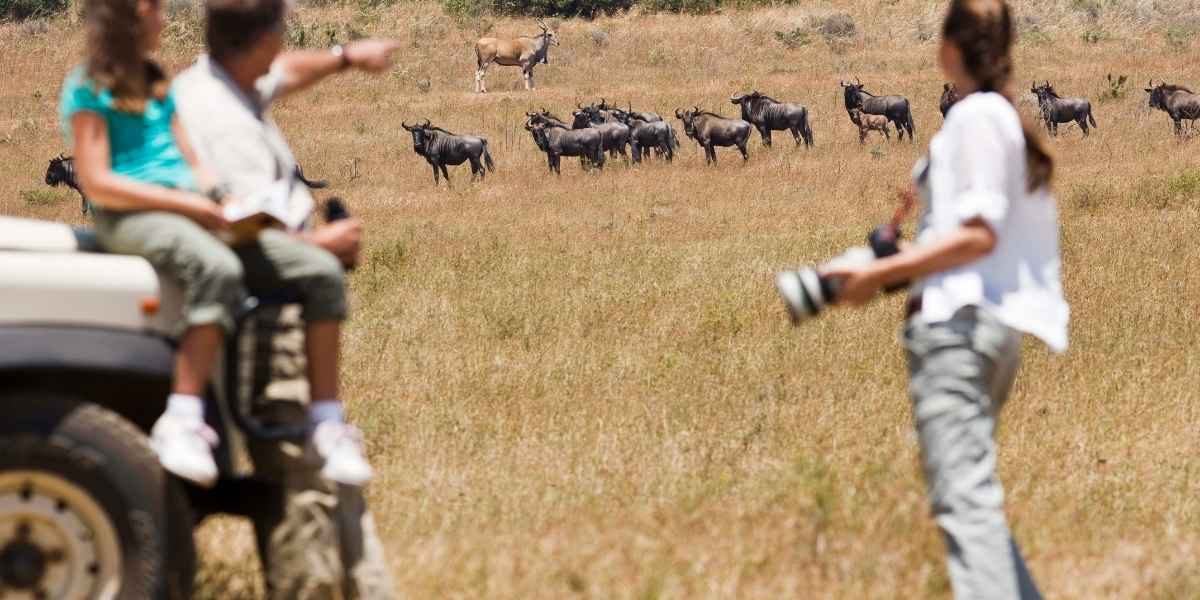How Can Travelers Embrace Responsible Wildlife Tourism?
Wildlife tourism offers an incredible opportunity for travelers to witness nature’s beauty while supporting conservation efforts. With the increasing popularity of destinations like African safaris, rainforest treks, and marine wildlife excursions, it is essential to approach these experiences responsibly. Travelers play a significant role in shaping how wildlife tourism impacts the environment, local communities, and the animals themselves. By adopting ethical practices, visitors can enjoy memorable encounters with wildlife while ensuring the sustainability of natural habitats.
Read Also: Comprehensive Support for Athletes at the University of Nevada
The cornerstone of responsible wildlife tourism is respecting the animals’ natural behaviors and habitats. Activities like observing animals from a safe distance, avoiding loud noises, and refraining from touching or feeding them can prevent unnecessary stress. Wildlife should be appreciated in their natural environment, free from human interference. Choosing tour operators who adhere to ethical standards ensures that these principles are maintained. Certification programs like the Global Sustainable Tourism Council provide travelers with valuable resources to identify responsible organizations.
What Role Does Sustainability Play in Wildlife Tourism?
Sustainability is at the heart of ethical wildlife tourism. Travelers can contribute by supporting eco-friendly initiatives that protect habitats and reduce the carbon footprint of tourism activities. For example, many wildlife lodges and safari camps now use renewable energy, practice waste reduction, and invest in reforestation projects. By choosing accommodations and tours that prioritize sustainability, travelers actively support conservation efforts.
Engaging with local communities is another essential aspect of sustainable wildlife tourism. Many wildlife-rich areas are home to indigenous populations whose livelihoods depend on preserving their natural surroundings. Supporting local businesses, purchasing handcrafted goods, and hiring local guides are ways to ensure that tourism benefits these communities. Empowering locals strengthens their commitment to conservation while creating a mutually beneficial relationship between visitors and hosts.
Travelers can also reduce their environmental impact by limiting their use of single-use plastics, choosing sustainable transportation options, and adhering to leave-no-trace principles. Simple actions, such as carrying a reusable water bottle or traveling with eco-friendly luggage, contribute to protecting fragile ecosystems. Every small choice made by tourists adds up to a larger impact on sustainability.
How Can Wildlife Tourism Support Conservation Efforts?
Wildlife tourism has the potential to be a powerful tool for conservation when executed responsibly. Many destinations use funds from tourism to support national parks, wildlife reserves, and rehabilitation centers. Entrance fees and tour costs often contribute directly to protecting endangered species, maintaining habitats, and funding research initiatives.
In some cases, wildlife tourism creates safe havens for species under threat. Sanctuaries and reserves supported by tourism provide a controlled environment where animals can thrive without the dangers of poaching or habitat destruction. By visiting these destinations, travelers help sustain these vital spaces.
Educating travelers about conservation is another critical role of wildlife tourism. Tour guides and operators often share information about the animals, their habitats, and the challenges they face. These stories inspire travelers to become advocates for wildlife protection long after their trips end. The power of storytelling transforms wildlife encounters into meaningful experiences, leaving visitors with a lasting commitment to conservation.
Travelers should be mindful of avoiding attractions that exploit animals for entertainment. Activities like riding elephants, posing with drugged or captive animals, and visiting unregulated zoos can harm the very creatures tourists seek to admire. Instead, prioritize experiences that respect the animals’ welfare and contribute to their long-term survival. Being an informed traveler ensures that tourism supports conservation rather than exploitation.
What Are the Long-Term Benefits of Responsible Wildlife Tourism?
When conducted responsibly, wildlife tourism provides lasting benefits for ecosystems, local communities, and travelers themselves. Protecting natural habitats ensures that wildlife populations remain healthy and balanced. Thriving ecosystems also contribute to climate regulation, water purification, and biodiversity preservation, offering broader environmental advantages.
For local communities, responsible tourism creates jobs and educational opportunities. Revenue generated from tourism supports schools, healthcare, and infrastructure in remote areas, improving the quality of life for residents. The partnership between communities and conservation strengthens the social and economic fabric of these regions.
From a traveler’s perspective, ethical wildlife tourism provides a deeper connection to nature. Observing animals in their natural environment fosters respect and appreciation for the planet’s diversity. These experiences often inspire a commitment to environmental stewardship, encouraging travelers to adopt sustainable practices in their daily lives.
Read Also: Exploring Safe Destinations for Solo Female Travelers
Travelers who embrace responsible wildlife tourism leave a positive legacy for future generations. By supporting ethical practices, they ensure that iconic destinations and endangered species continue to thrive. Every thoughtful choice contributes to the preservation of our natural world.








